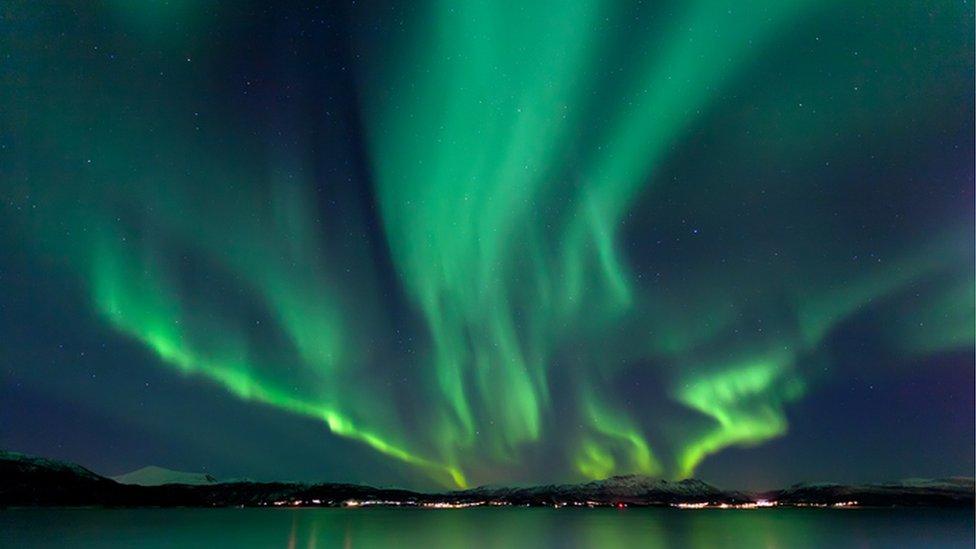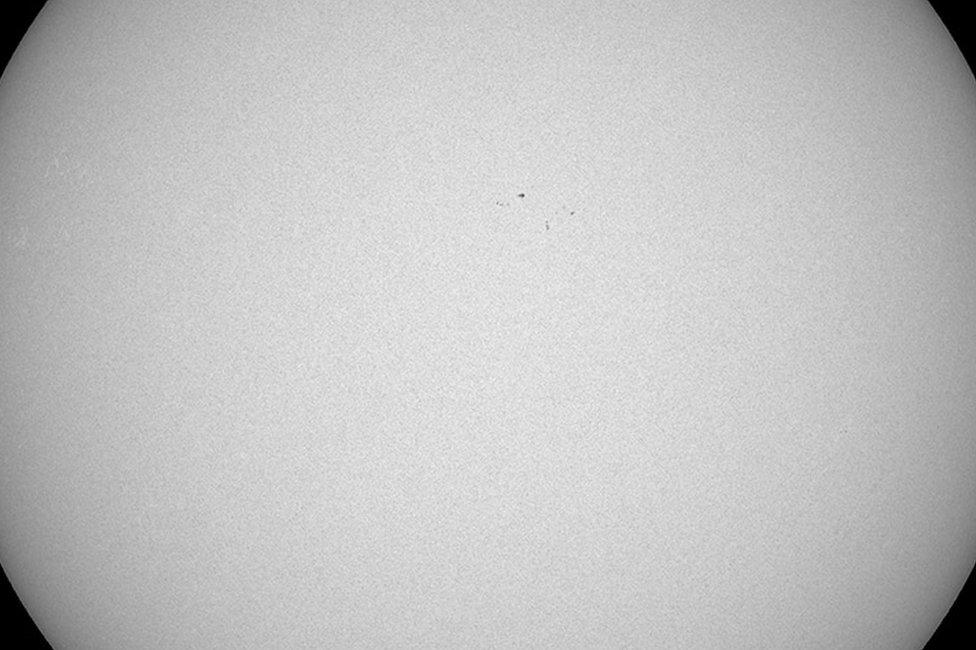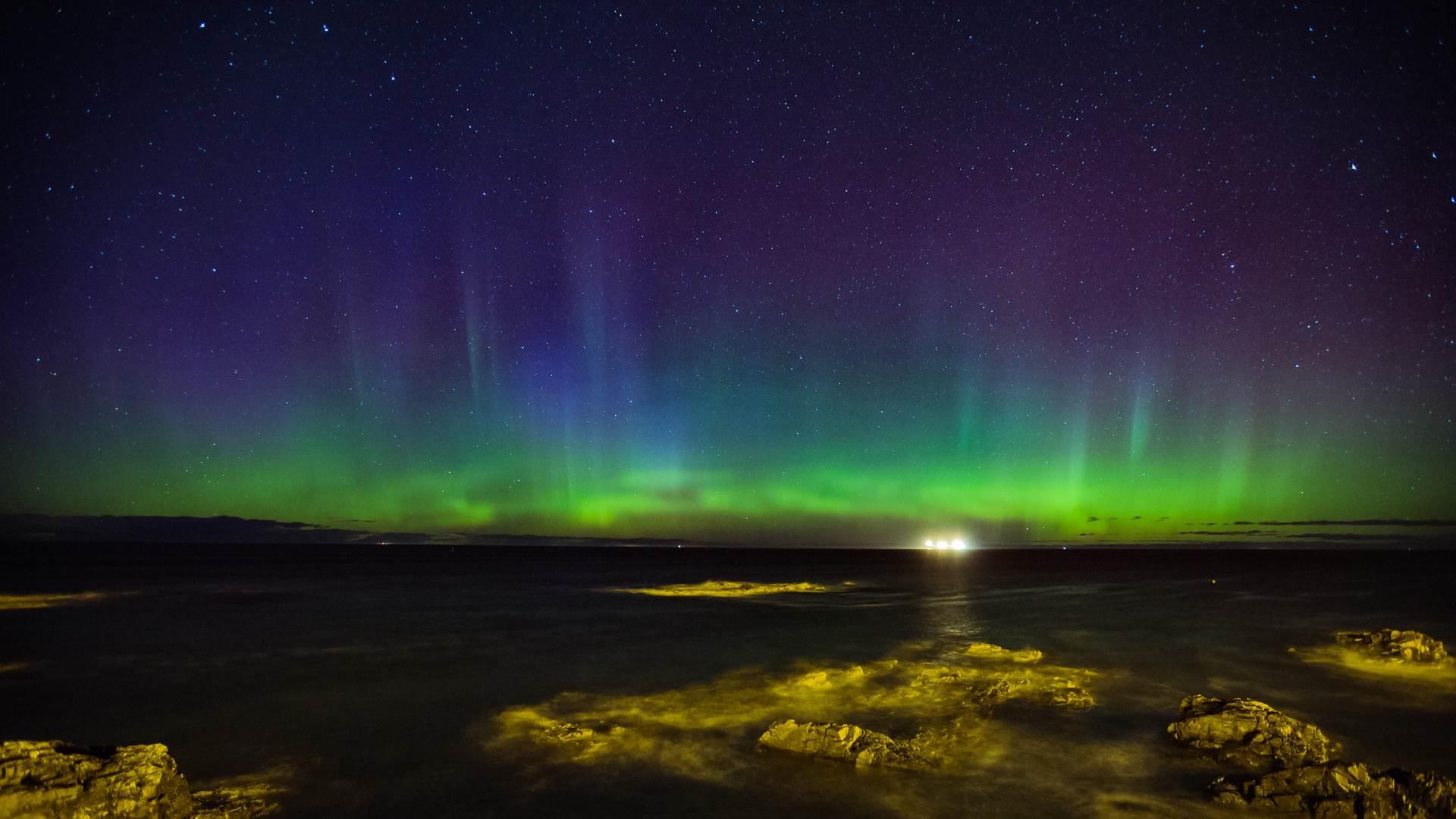Chances of seeing Aurora Borealis from UK 'may disappear'
- Published

Displays of the Aurora Borealis are linked to activity on the sun
The chances of seeing the Aurora Borealis from the UK could be decreasing and even disappear altogether, say scientists.
Scotland is one of the best places in the UK to observe the Northern Lights, which are related to activity on the sun.
Scientists at the University of Reading suggest this activity could be falling to its lowest in 300 years.
They said this would mean the aurora being confined to the North Pole.
Activity on the sun is cyclical and scientists say it is currently headed to the period of lowest activity in the cycle called the solar minimum.
The Aurora Borealis is caused by the interaction of the solar wind - a stream of charged particles escaping the sun - and Earth's magnetic field and atmosphere.
The Northern and Western isles, the Highlands and north east Scotland offer some of the best places to observe the Northern Lights at night when skies are clear.
Aberdeen's associations with the Aurora Borealis are celebrated in the local song, The Northern Lights of Old Aberdeen.
In the past, the city's tourist information staff have been asked when the "lights were turned on" by visitors unsure of what causes the displays.

Lights show by Steven McKenzie

If you have been lucky enough to see the Northern Lights you won't need to be told how awe inspiring the displays can be.
Growing up in deepest rural Aberdeenshire my mum would often tell me at breakfast how wonderful the aurora had been the night before.
"Why didn't you wake me up?" I'd whine, only to be told the "lights" had "come on" well after my bed-time.
When eventually I was old enough to be up a bit later and caught sight of the aurora I found myself riveted to the spot.
It was on a cold night and the temperature was below freezing, but I didn't notice the cold. I was transfixed by a giant curtain of light, being tugged into rippling movement by a silent wind and of colours that changed from bright green to deep purple.
I stood staring up at the Northern Lights until my hands were blue with cold and my neck ached...and my mum had shouted at me for the umpteenth time it was time to come inside.

Reading University's Dr Mathew Owens, whose study of the aurora with Prof Mike Lockwood has been published in the journal Scientific Reports, said activity on the sun was reducing.
He said: "The magnetic activity of the sun ebbs and flows in predictable cycles, but there is also evidence that it is due to plummet, possibly by the largest amount for 300 years.
"If so, the Northern Lights phenomenon would become a natural show exclusive to the polar regions, due to a lack of solar wind forces that often make it visible at lower latitudes."

The image taken by Nasa's Solar Dynamics Observatory last year
Scientists have been observing the decline in activity on the sun for some time.
Towards the end of last year, Nasa's Solar Dynamics Observatory spacecraft recorded Earth's nearest star hitting its lowest level of solar activity since 2011.
The Solar Dynamics Observatory captured an image of the sun showing it almost completely clear of sunspots, indicators of activity on the star.
- Published29 September 2016
